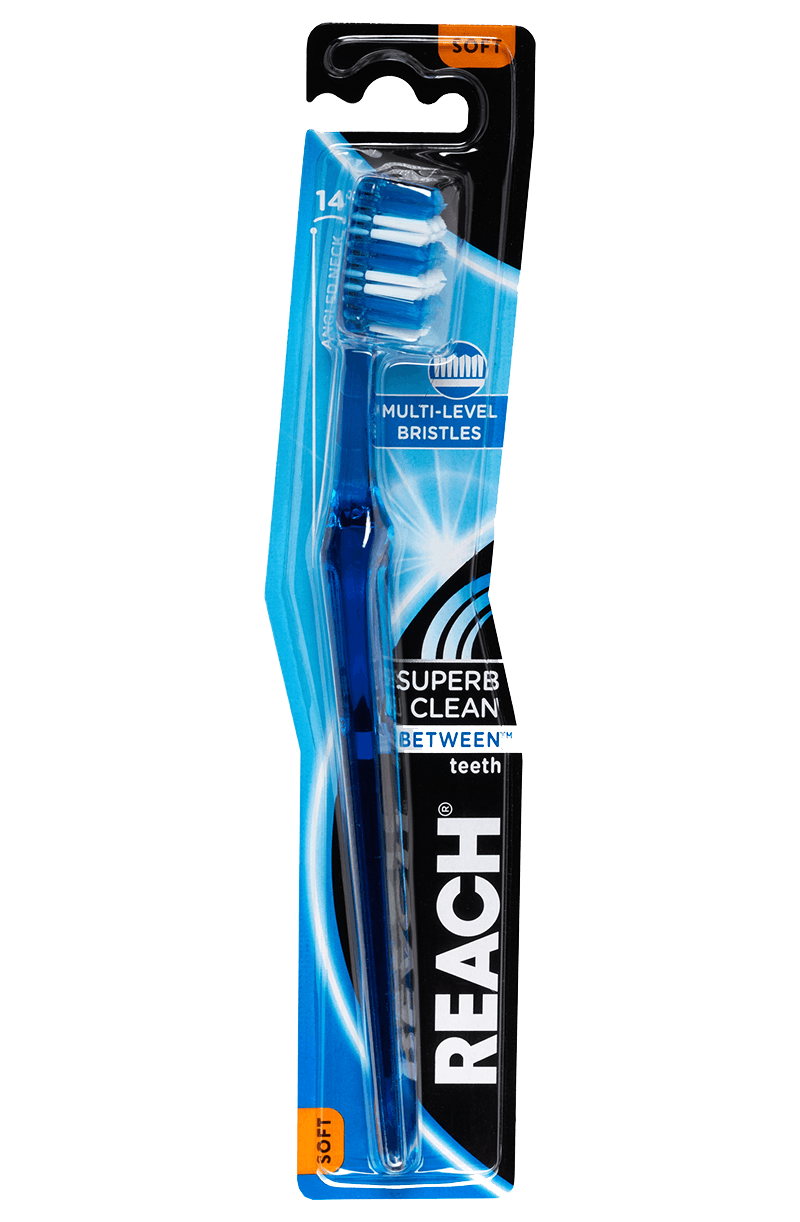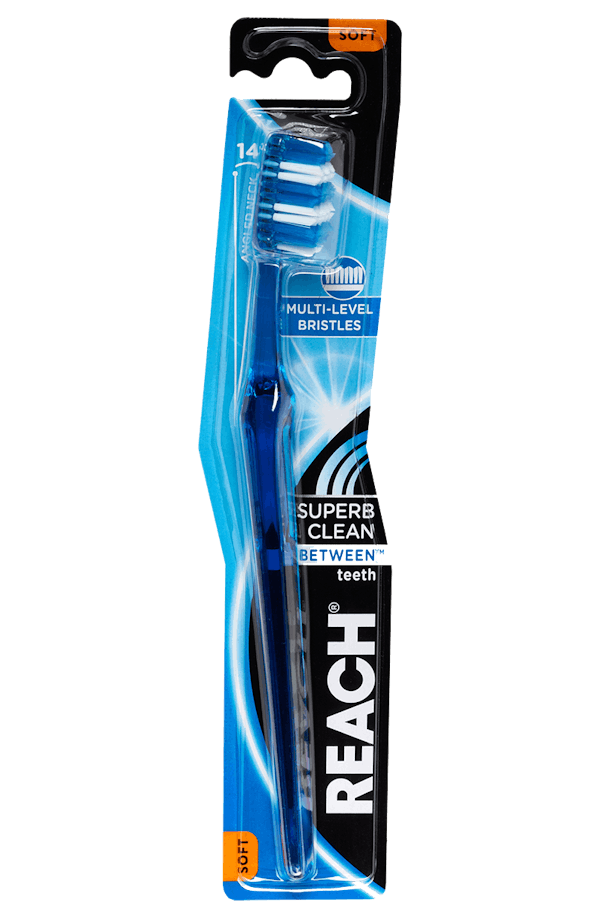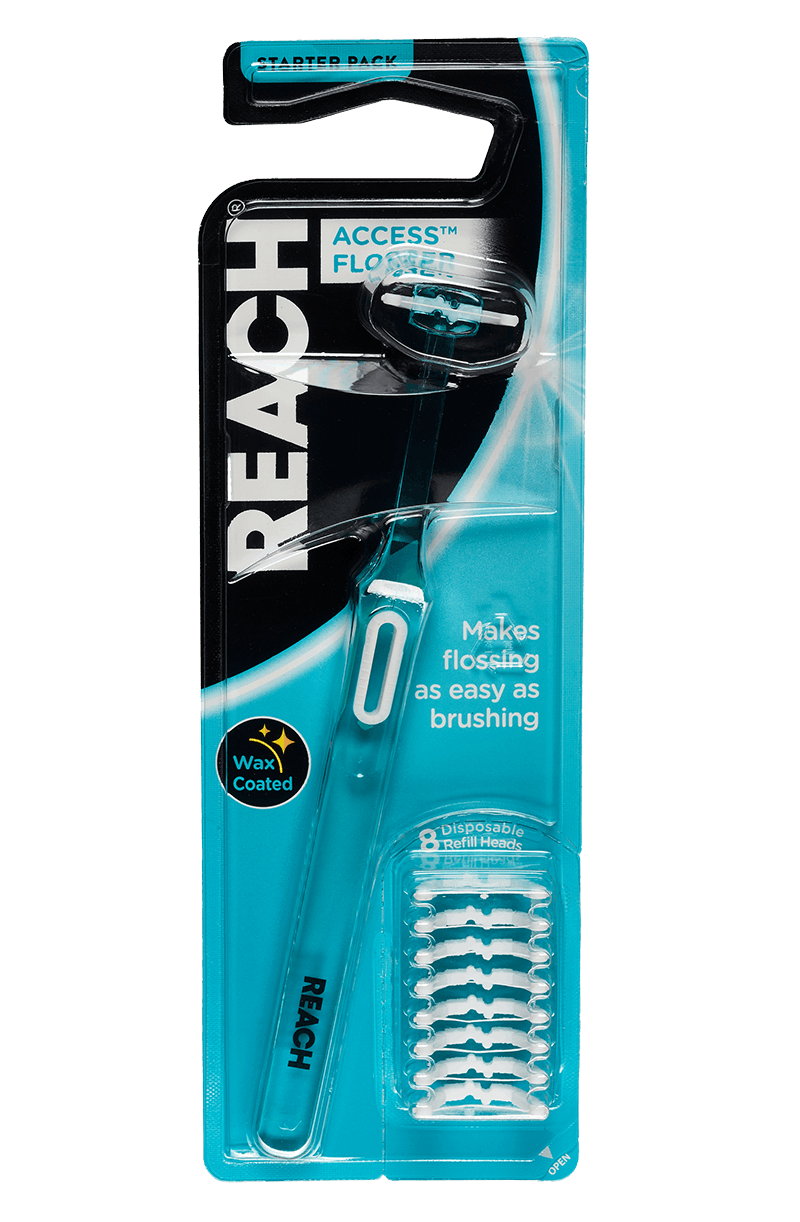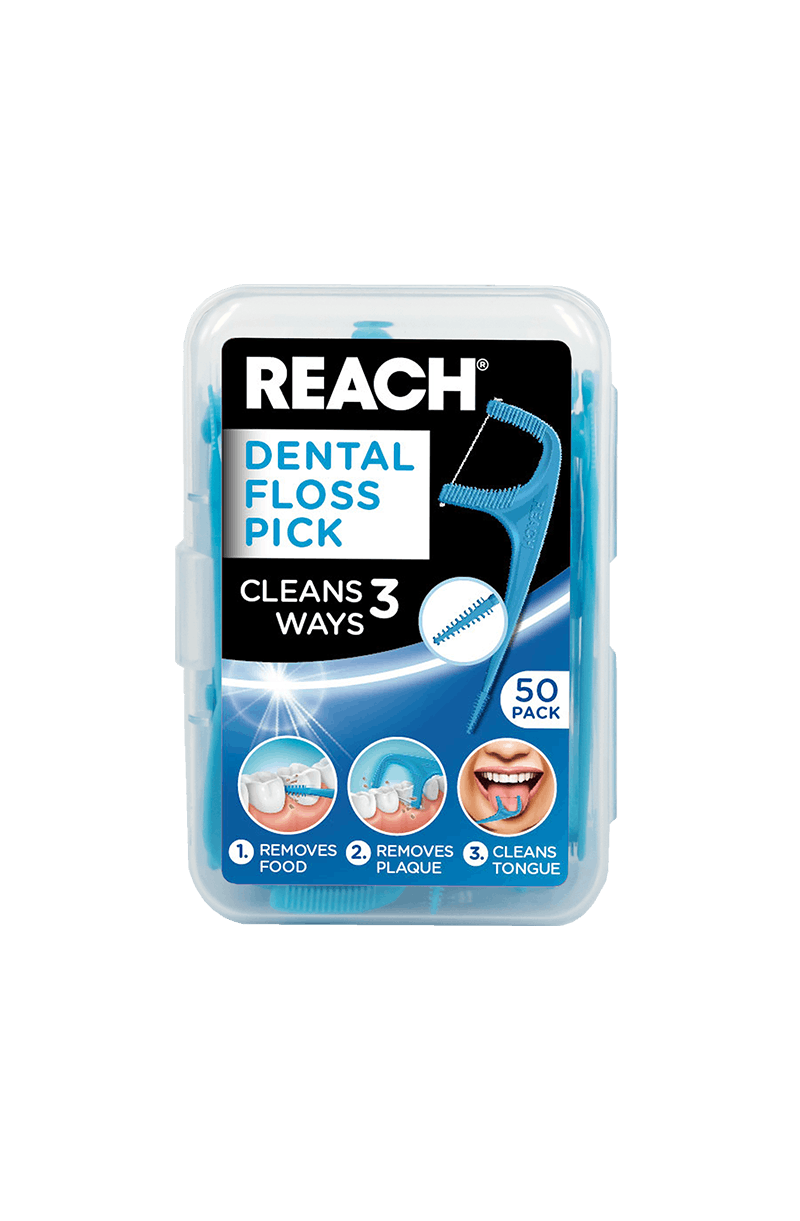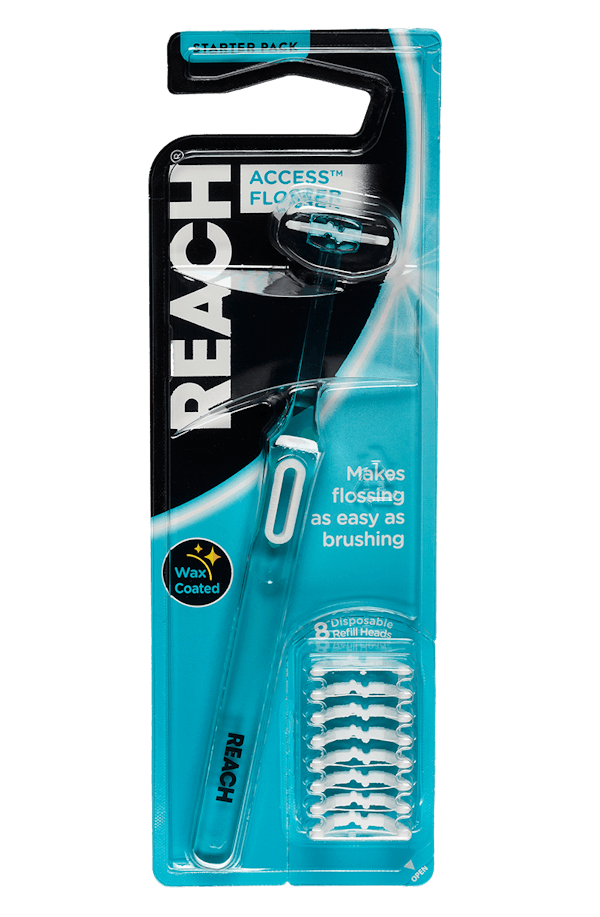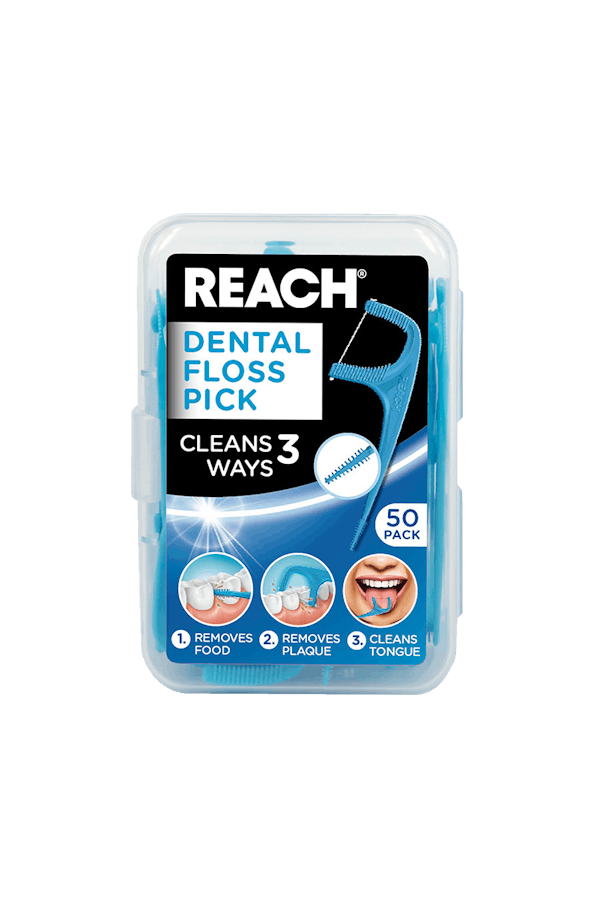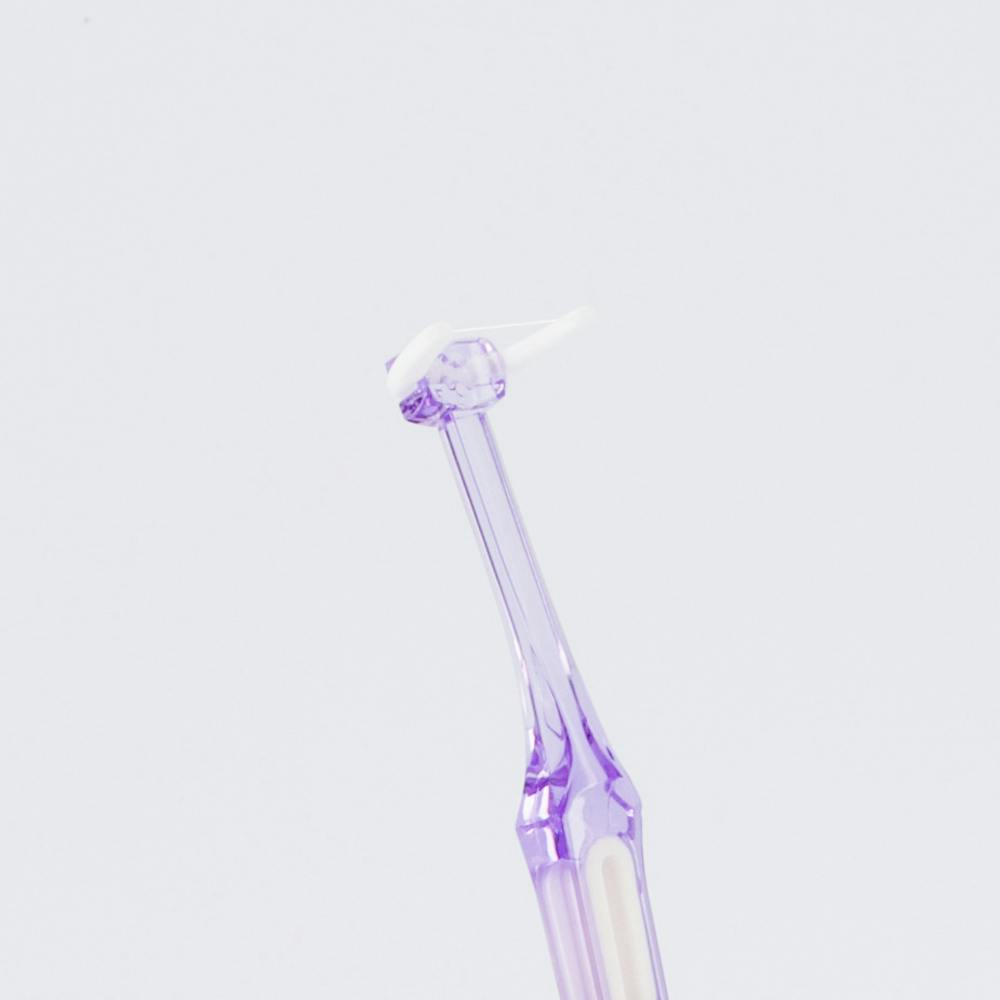
Flippin heck! Get a REACH instead
Reach Toothbrushes
We launched the first toothbrush with an angled head, and in the decades since, Reach has become one of the most popular toothbrush brands in
New Zealand.
Dental Floss
While flossing can seem like a hassle, it’s super important. No matter how good your toothbrush is, it can’t reach where your teeth meet or below your gumline.
Reach dental floss has a waxed surface so it slides comfortably between your teeth and below the gumline.
It’s shred-resistant, and offers excellent value per metre. Our 50m pack is twice the length of many others and, for even better value, look for our super-long 183m pack.
Flossers
Did you know we offer specialised Flosser products to help you care for your teeth?
The Reach Access Flosser has a comfortable handle to make flossing as easy as brushing.
Then when you're away from home, our Floss Picks are ideal to keep your teeth clean and mouth feeling fresh.
A fresh approach
For decades, Reach has offered New Zealanders a range of proven and trusted oral care products.
We won’t try to persuade you with celebrities or cheesy ‘dentists’ in white lab coats using confusing scientific jargon and made-up acronyms. We simply make great products that live up to what we promise…oh, and there’s our friend Mr Reach to make things fun!
Many Kiwis warmly remember the launch of the first toothbrush with an angled head, thanks to the lovable Mr Reach with the flip-top head. We hope you enjoy seeing him on screen again.

